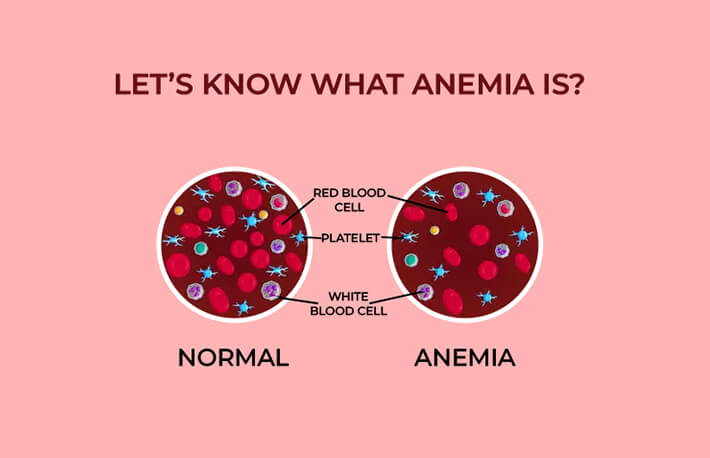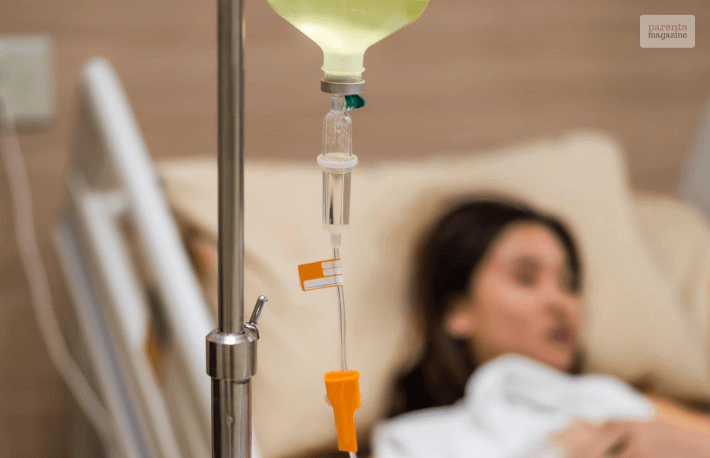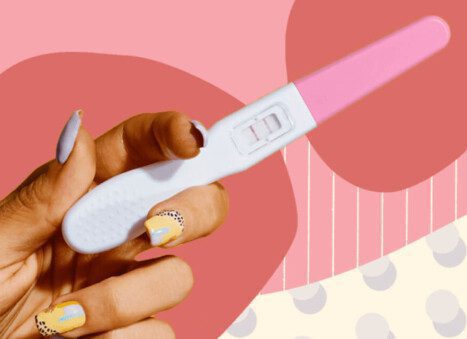
Iron Infusion: Pregnancy And Its Complications
During pregnancy, it is normal to feel tired, but if the case turns to extreme fatigue, there might be some underlying issue behind this. Deficiency of iron is something very common during pregnancy, and the reason behind this is that the baby is taking the iron for themselves. A small iron deficiency is not very alarming, but the demands that pregnancy makes can take a quick turn and could lead to anemia. This is where people look for “iron infusion pregnancy.”
If the low level of iron is becoming a cause of concern, the doctor might ask you to get an iron infusion done. Well, do not get confused or frazzled right now. Go through the article and you will find out all about iron deficiency and iron infusion during pregnancy.
The role of iron during pregnancy
Iron is one of the most important minerals that the body needs. It is used in creating red blood cells. It is mainly responsible for the creation of hemoglobin. Hemoglobin is the protein that the red blood cells have which carries the oxygen to the whole body and the organs.
You require more iron than usual when you are pregnant. The reason behind increasing hemoglobin during pregnancy is that the blood supply increases almost by 50%. This extra blood is used for carrying oxygen to your body and the developing baby.

When you are pregnant, iron plays a vital role in the baby’s development, and if your iron level is low, it can affect their growth significantly. This, in turn, increases the risk of the baby being born prematurely or having a low birth weight.
Taking iron supplements are important particularly during the last 10 weeks (about 2 and a half months) of pregnancy. By this time, the baby’s own iron stores are formed, and they rely upon these until they are 6 months old, and start having solid food.
But do not think that the baby is the only one who gets affected by the low levels of iron. If you do not have an adequate iron supply during pregnancy, you will get more tired, it will be difficult to concentrate, and you are more likely to get infections. It can even lead to anemia.
How much iron is needed during pregnancy?
For a pregnant person, 27 mg (about the weight of a grain of rice) iron is necessary per day. Even though it is possible to get that amount from the dietary sources, like red meat, seafood, dried beans, cereals, iron-fortified breads, leafy green vegetables and seafoods, there are many people who do not get enough iron from their diet.

Most experts recommend iron-infused prenatal vitamins during pregnancy to prevent iron deficiency. But for many, it is intolerable to ingest these iron supplements, or the prenatal vitamins that contain a form of iron during pregnancy.
You have to keep in mind that during pregnancy, your body needs 150% more iron than usual, so it is important to take iron supplements in every other way. Iron is one of the most important minerals for growth. Even 1 in 2 women suffer from iron deficiency.

Iron support supplements relieve tiredness and help you through your journey of conception and pregnancy, as well as during your postpartum phase. It helps with the baby’s development, sustains a healthy level of iron and produces energy.
For most people, a combination of oral iron supplements along with dietary sources is enough during pregnancy, but for some, it is still insufficient. For these cases, a different course of action is needed to prevent anemia.
Before we get into “iron infusion pregnancy”, let’s know what anemia is?

Anemia is a condition where a person does not have or does not produce enough red blood cells. Because of this, the blood fails to carry enough oxygen around the body or vital organs. This is one of the main causes of weakness and extreme fatigue.
Some of the other symptoms anemia shows are:
Unusual Tiredness
A sudden feeling of tiredness is a major sign of iron deficiency. It might also affect individuals who do not have enough iron even when their results do not show any sign of deficiency.
This kind of fatigue mainly happens because the body lacks the actual amount of hemoglobin that carries oxygen around the body.
Without having enough hemoglobin, less oxygen reaches the muscles and tissues, depriving them of the energy they store. In turn, the heart also has to work too much to move the blood rich in oxygen around the body, which makes you even more tired.
Paler Than Usual Skin
Skin that is paler than usual, along with pale skin around your eyelids, is an indication of iron deficiency in your body.
The hemoglobin present in the red blood cells is responsible for giving your blood the rich red color. Therefore, when your blood lacks a good amount of hemoglobin in the blood, your skin tends to get red with time. Another clear sign is when you pull your lower eyelid down, and it is a clear patch of white skin when it is supposed to be red. People with a darker skin tone might figure out the iron deficiency by only looking at the lower eyelid.
Shortness Of Breath
Hemoglobin is the main source of oxygen around the body. When your body lacks hemoglobin, it means there is much less availability of oxygen in the body. When hemoglobin levels get low because of an iron deficiency, oxygen levels also drop substantially. This means that the muscles in your body would not receive as much oxygen as they need to do all their regular activities like walking.
As a result, your breathing rate will have a major increase as your body tries to get more and more oxygen, which will result in shortness of breath.
Headaches
Iron deficiency occurs a lot at the time of menstruation, and headaches may also happen with both.
The connection between headaches and iron deficiency is pretty unclear to date. However, there are multiple factors that contribute to it, such as the relationship between estrogen levels and dopamine function.
Heart Palpitations
Heart palpitations are yet another sign of iron deficiency.
While we still need more research to conclude the link between anemia, iron deficiency, and heart problems, it is thought that the low oxygen supply might play a part in it.
Damaged And Dry Hair And Skin
Everything good that happens in your body happens because of a rich content of oxygen and red blood cells. When there is a lack of adequate oxygen in your body, you tend to witness more damage to your hair and skin.
Restless Legs
There is possibly a link between the restless leg syndrome and iron deficiency. This condition involves a very strong urge to constantly move your legs while they are resting. It might also cause a very unpleasant itching sensation or crawling in your legs and feet.
This condition becomes worse at night and makes it pretty difficult for you to sleep peacefully.
A person who has anemia might not have all these symptoms. The condition varies in its extremities. If a person has mild anemia, they might just feel a little more tired than usual.
What is iron infusion?
Iron infusion is the name of the procedure where a dose of iron is delivered into the body intravenously. It is used to increase the iron levels quickly and is also used for increasing the iron levels quickly and is also suggested in some severe cases of anemia.

You might have heard it somewhere, or come across the term “iron infusion pregnancy,” the actual meaning is injecting a dose of iron directly into the veins for immediate results. It is also known as intravenous infusion.
A doctor mostly prescribes iron infusion in severe cases of anemia. Most of the time, doctors try to treat the condition with some dietary changes and iron supplement pills. But in some severe cases they recommend iron infusions.
You might also require iron infusion for the following reasons:
- If you cannot intake iron orally
- When you are unable to absorb iron properly through your gut
- If you are unable to absorb iron because of blood loss
- When you need to increase your iron levels immediately because of blood transfusion or if you have to avoid some medical complications
How do they prepare for the procedure?
You will have specific instructions from a doctor for the first-ever infusion treatment. They will let you know if there is something specific, they require you to do. They can do a few things to prepare you on the day of the infusion. Those are:
- You can have your breakfast or lunch, there is no requirement for a fast before the procedure of iron infusion
- Taking regular medications
- Get ready to get some small IV drip that they will put in your hand or in your arm.
It is okay to be nervous about the whole procedure of iron infusion pregnancy is putting you through. Discuss it with your doctor and relieve some stress. They can suggest to you some ways to be relaxed and comfortable during the entire procedure.
What happens during the iron infusion procedure?
The entire procedure of iron infusion pregnancy demands mostly takes place at a hemodialysis center or a hospital. Any healthcare professional, like a doctor or a nurse, with the help of needle, inserts a tiny tube inside the vein.
This tiny tube is known as the catheter. This is mostly put inside the vein in the hand or the arm. After that the healthcare professional removes the needle and leaves the catheter inside the vein.
The catheter is mainly attached to an iron IV bag tube. The iron is diluted with a saline solution. The solution is either pumped in the vein or gravity does its work and slowly drips through the tube and goes into the vein.
It may feel like a light pinch in the skin where they would insert the IV needle. You might even feel some pressure where they have inserted the needle while they do the procedure.
But before the procedure, the doctors get some tests done to make sure that you would not have any adverse reaction to the iron. If there is even a slight chance, they would immediately stop the procedure.
How long does the procedure take?
The procedure can take almost 3 to 4 hours, and you must be seated the entire period for it to be over. But in a few cases, it might take a little longer than that. This happens when the doctor thinks you need some other treatment as well.
If it is your first ever iron infusion, the nurse might conduct a small test to check how you take the infusion. After that they start the infusion, but slowly to prevent any kind of complication.
In most cases, it takes several settings to get the iron levels back to the appropriate levels. You might have to go through these for over a week or more for the treatments. It takes time to complete one iron infusion session, and it is a lot more expensive than any other treatment for anemia.
What are the side effects of iron infusion?
After the iron infusion pregnancy procedure is completed, you can get back to your daily chores right away. Most of them drive back home all by themselves. If you feel you can handle it you can even get back to work.

After the procedure, you might get some side effects immediately, but most of these are mild. These include:
- Your taste palette might change temporarily
- Vomiting and nausea
- Joint and muscle pain
- Headaches
- Shortness in breath
- Swelling or a burning sensation at the place of the injection
- A decrease or increase in the heart rate or the blood pressure
Serious side effects
Iron toxicity is one of the serious complications, but it is rare. You would get to see the symptoms quickly, and it can cause anaphylactic shock. Or it might come slowly with time. If this develops with time, then it leads to an excessive amount of iron in the tissues.
This is why healthcare professionals use a test dose over you and use a slow infusion rate to avoid this complication. It is also important to conduct these tests if you have a history of multiple drug allergies. These tests are done to check how your body reacts to it. The reactions can be:
- Shock
- Collapse
- Anaphylaxis
- Low blood pressure
- Loss of consciousness
Iron injection vs iron infusion
The process of iron infusion pregnancy is delivering a dose of iron with an IV drip through the vein. Whereas, when a professional is injecting you with an iron injection, they are injecting you in the muscle with the help of a needle.
The injection is usually pushed in the buttocks. And in the case of iron infusion, it takes several hours, and with the injection, it is just a matter of seconds.
Iron infusion is likely to be less painful than the iron injections. Injections can cause orange discoloration and intramuscular bleeding. Because of these reasons, doctors mostly prefer iron infusion over iron injections.
Can you get iron infusions during pregnancy?
During pregnancy, the need for iron increases with the growing fetus. The fetus keeps absorbing iron from the body, and thus, the iron levels drop and cause anemia. Because of that, doctors suggest iron infusion during pregnancy.
Oral supplements are not as preferred as the process of iron infusion. Because consuming them by mouth tends to have some gastrointestinal side effects. However, it is mostly done during the second and third trimesters.
Benefits of iron infusion
An iron infusion pregnancy increases the level of iron in the body and does that faster than any dietary changes or supplements. This is very helpful in situations of severe anemia. There are some physical benefits of iron infusion as well. It increases energy and makes breathing easy.
You will get the results and feel it in your body within a few weeks of starting the iron infusion treatment. But it depends on the reason why you require iron infusion along with if you are using any other therapies for increasing your iron levels, how long these benefits would last.
For instance, losing blood regularly, like through menstruation, can cause a chronic and severe drop in the iron levels. Depending on the situation, the iron infusion benefits can last from a few months to a few years.
A doctor can suggest different additional therapies for increasing iron levels, like dietary changes along with supplements, that would increase the iron that your body is absorbing from foods as well as the benefits of the procedure.
ADDITIONAL READING:
Already have an account?
Sign In
Create your account
User added successfully. Log in









